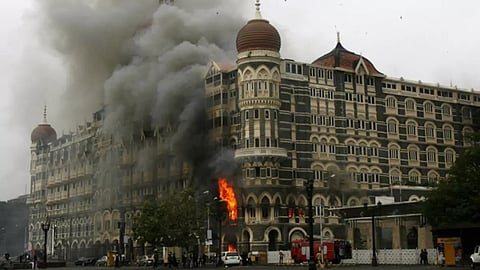

NEW DELHI: Ahead of the anticipated extradition of 26/11 terror attack conspirator Tahawwur Hussain Rana, Delhi’s Patiala House Court has recalled trial court records related to the Mumbai attacks.
The move, triggered by an application from the National Investigation Agency (NIA), is being seen as a strategic step toward bringing Rana to trial in India.
The trial records, previously transferred to Mumbai due to multiple cases related to the 2008 attacks, are now set to be retrieved by Delhi authorities. This development purportedly suggests Indian agencies may be preparing to prosecute Rana in the capital, streamlining the legal proceedings against him.
Rana, a 64-year-old Pakistan-born Canadian national, has been fighting his extradition to India since his arrest in the United States. A close associate of Pakistani-American terrorist David Coleman Headley, Rana played a crucial role in the planning and execution of the Mumbai attacks that left 166 people dead. Despite his legal maneuvers to evade extradition, the US Supreme Court recently denied his petition to block the transfer. On January 21, the court refused to review his case, effectively clearing the path for his extradition.
This decision upheld an earlier ruling by a lower court that had found Rana extraditable to India under the US-India Extradition Treaty. Former US President Donald Trump had previously described Rana as “one of the plotters and very evil people of the world,” underscoring the gravity of the charges against him.
Rana was first prosecuted in the United States District Court for the Northern District of Illinois, where he was convicted of providing material support to the terrorist group Lashkar-e-Taiba and conspiring to commit acts of terrorism in Denmark. However, he was not convicted for his direct role in the Mumbai attacks. After serving a 14-year prison sentence in the US, he remained in supervised detention in Los Angeles while fighting extradition.
His legal defense argued that he could not be tried twice for the same crime (double jeopardy), but US courts rejected this claim, stating that the charges India has pressed against him—including conspiracy to wage war, commit murder, forgery, and acts of terrorism—are distinct from those for which he was convicted in the US. In a final effort to block his transfer, Rana sought a writ of habeas corpus from the United States District Court for the Central District of California. However, the Ninth Circuit Court affirmed the habeas court’s judgment on August 15, 2024, dismissing all of his arguments.
With his legal options exhausted in the US, Rana’s extradition now seems imminent. Once brought to India, he will face prosecution under various sections of the Indian Penal Code and the Unlawful Activities (Prevention) Act.